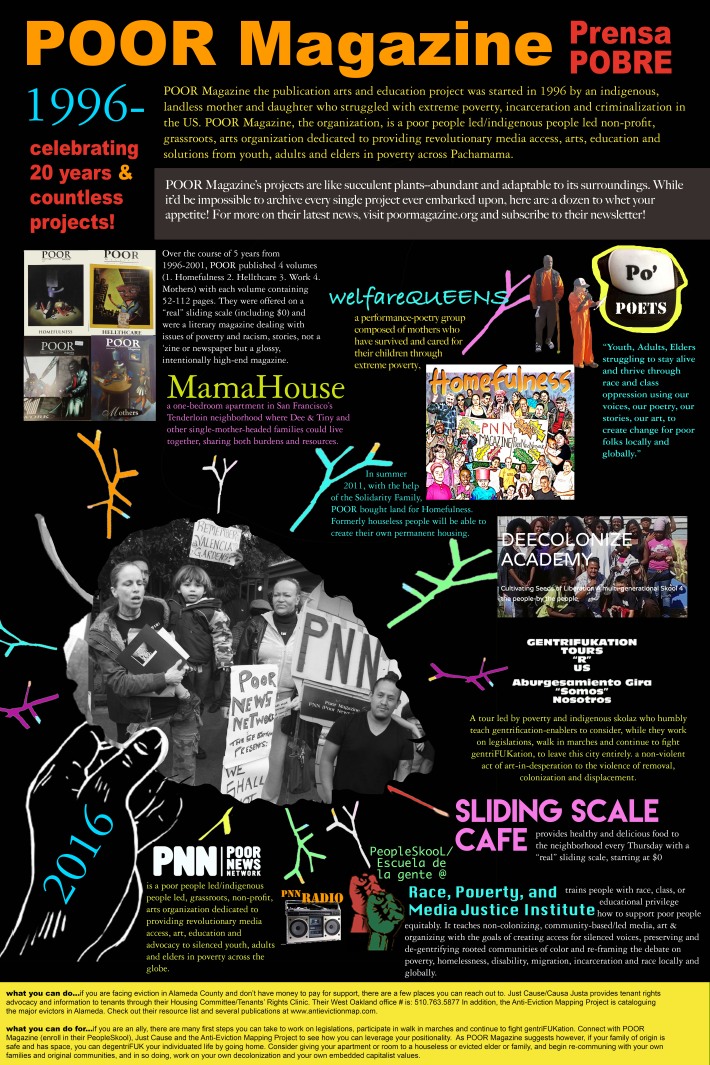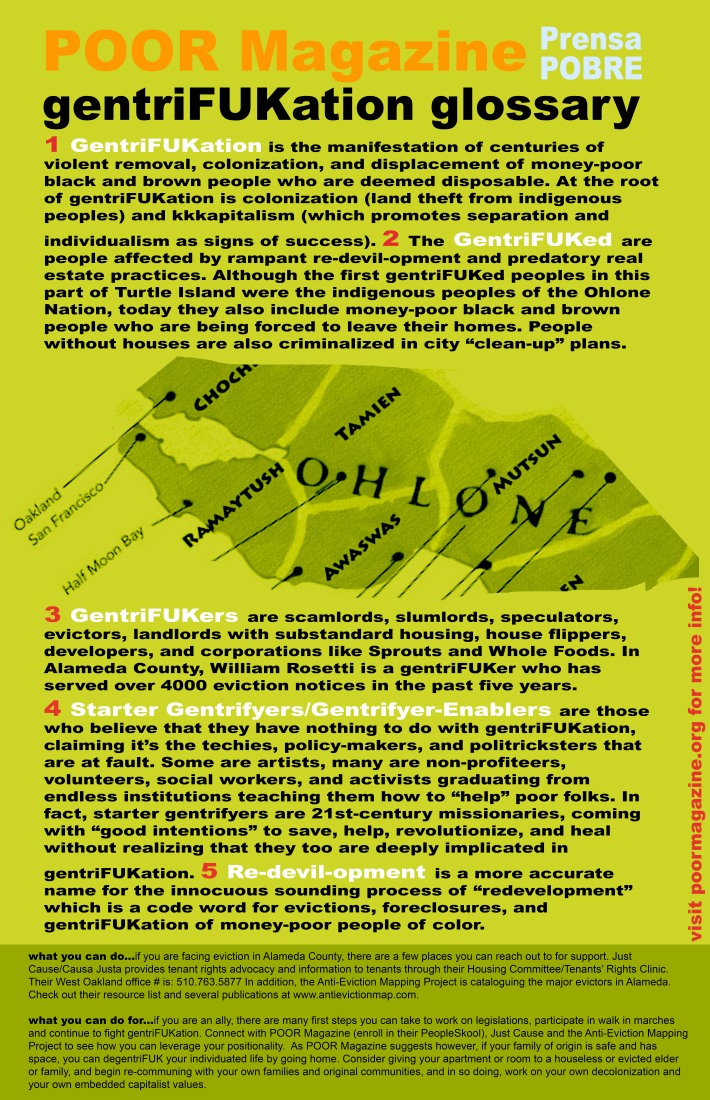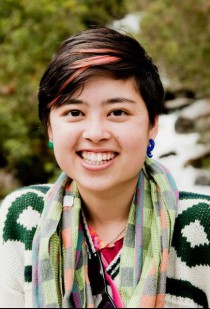Please scroll to the bottom for typed text version of this post.
Here are also two posters I made with and for POOR Magazine who you can follow on:
YouTube – Subscribe!
Twitter – Follow
Facebook – Follow
www.tinygraygarcia.com
www.racepovertymediajustice.org


Typed text version:
What is organizational privilege?
This is a poverty scholarship framework developed by the folks at POOR magazine, and describe people who have race, class and or formal education privileges. Someone with organizational privilege knows that they will not ever go and health, hungry, or without access the network of support. It is a powerful framework for those of us who may not have a lot of money I have access to people who do and or ways of earning more.
Because I launched my crowdfunding campaign on Rosh Hashanah, today, 10 days into it is Yom Kippur, the Jewish day of remembrance to reflect on the year and any instances when one has missed the mark on the landing oneself to the highest self. A friend explained to me that the process of this reflection (tesuvah) is “a time for forgiveness, both giving and receiving, a time for returning, we committing to being and becoming who we need to be in order for the just and abundant world we dream of to be possible, to be here,” for everyone.
And so, I felt moved to this morning to write about my thoughts on forgiveness and at-one-ment with regards to my crowdfunding efforts. Have you heard of organizational privilege? (Check out above for the definition) Something that I can start with is that people and that includes this one with organizational privilege has much more ease and support when they we can’t find. As someone in higher education, I know others with degrees and stable incomes who believe in me & my vision, and are excited to support me. But when anyone without that network asks for money to live, have safe and stable housing, and support, it either is ignored or comes with all kinds of emotional price tags (i.e. pity, inspiration, shame, etc.) and restrictions (i.e. surveillance, incarceration, resegregation, cultural erasure).
I was fortunate to attend a workshop at POOR magazine in Oakland last month for people with organizational privilege, where I was urged to reclaim my voice as someone who has access and can re-distribute resources more intentionally and have conversations and others like me about this all without shame. Shame is an insidious emotion that stops us from action, keeping us all in the status quo. POOR magazine doesn’t ask people with organizational privilege to give away everything they have and leave they’re paying positions–in fact they see it as everyone’s responsibility to use their privileges wisely for the betterment of all. For me, that has helped me stop demonizing money and thinking of myself as someone who will always be low income, and instead encouraged me to earn the money my degrees and networks give me access to and redistribute.
So how does the circle back to forgiveness, at-one-ment and my crowdfunding campaign? Well, as a dear friend helped me see, my campaign has also been a painful reminder to some without organizational privilege of the disparities of support. And while that reminder initially made me want to stop the campaign, I had to accept that some may feel this way (and I could ask for forgiveness) at the same time as I stepped into utilizing this platform to have these necessary conversations, because injustice affects us all.
If you saw earlier I wrote atonement as “at-one-ment.” It’s a nod to my dear friend K, who talks about being “on the one” after we’ve cleared any density between us. Well, it doesn’t just happen once, it’s a process that requires daily and consistent reflecting & engaging. Practice too. As a Japanese saying 有言実行 says, if there are words there must be action.
One of my goals is to redistribute 5% of my income but I also want to commit that to my crowdfunding campaign as well. I plan to send money over to POOR magazine who is raising funds for Homefulness, a homeless people self-determined solution to homelessness, and the indigenous women-led land project Sogorea Te Land Trust as they labor to save, preserve, liberate, & honor the land we live on.
Thank you for reading this far and for being on this journey with me. You can follow my campaign at chuffed.org/project/teaching-for-transformative-change and see my daily post about life coaching on my Instagram @heymiyuki and facebook.com/miyuki.baker
xx Miyuki
P.S. Privilege is always intersectional and there’s lots of grey zones. It has been easier for me to identify with the parts of my lived experiences that were socially oppressed. But I’m ready or at least willing to claim the power and resources I do have, for our collective liberation.

